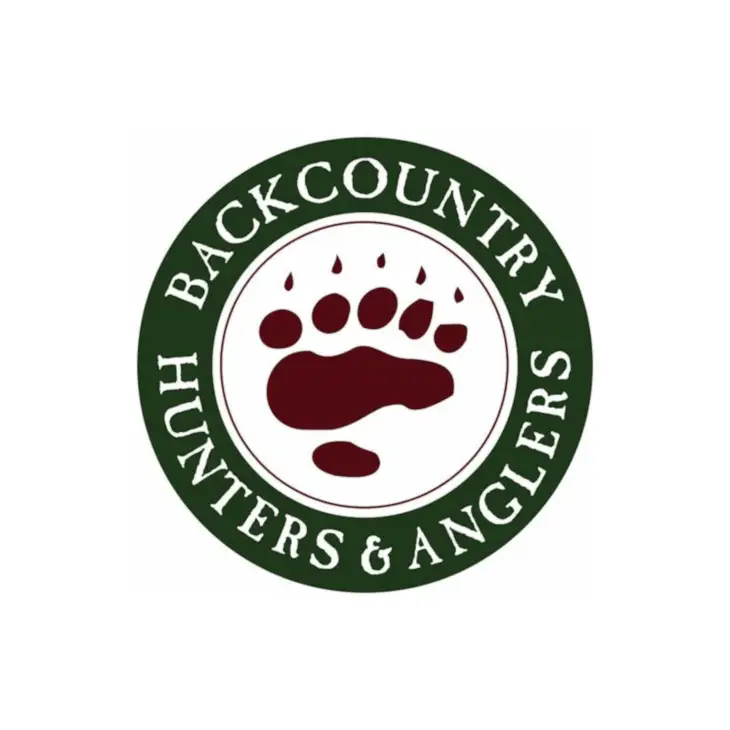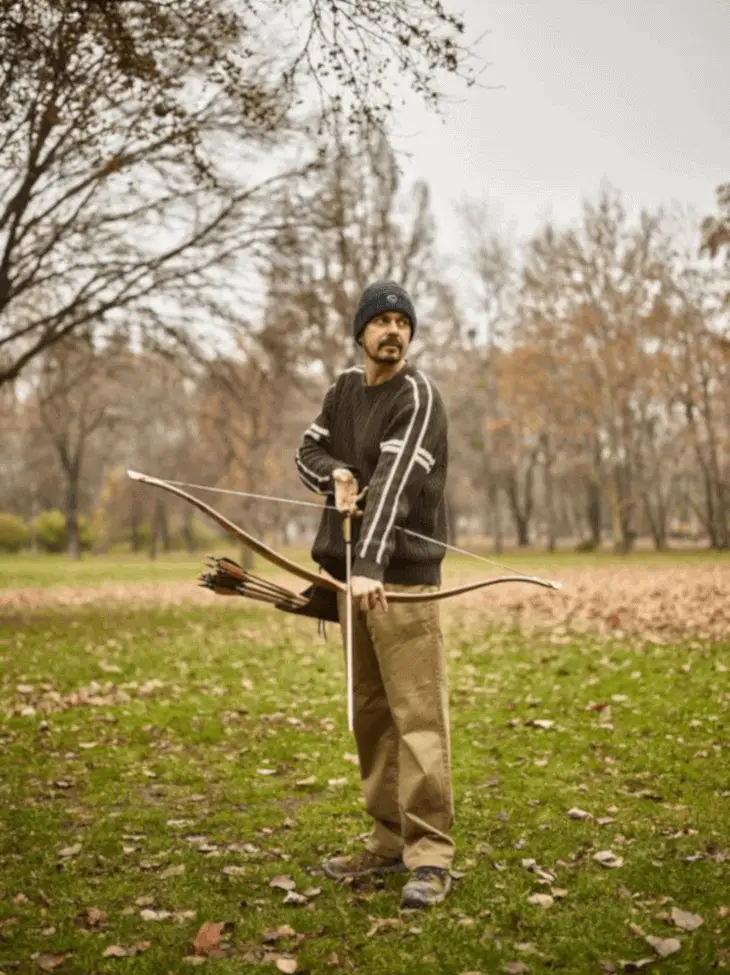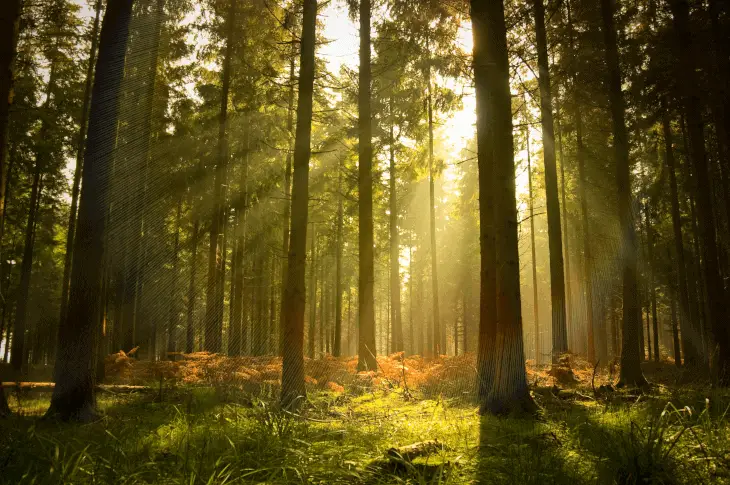When we started this website, we imagined we’d end up writing mostly about archery gear and bowhunting tips, and that sounded fine to us. We’re lifers and this is our passion, so we figured we’d happily stick to archery, and that would be that.
Along the way, though, a really neat thing occurred to us: we could spotlight groups that are related to archery and bowhunting, who are truly doing good in the world. That was a pretty big “a-ha” moment for us, and that’s why we’re so excited about today’s post.
Below we talk with Backcountry Hunters and Anglers (BHA), and their mission to safeguard our public lands and waters. If you’re new to archery or bowhunting or traditional archery and you’re unfamiliar with those terms, please read on—those terms represent a birthright that is
1) valuable beyond compare
2) fully, 100% yours, and sadly,
3) perpetually under attack.
A big, big THANK YOU to Backcountry Hunters and Anglers for taking the time to talk with us. Below, we talk about what public lands are, why they’re so important, and how protecting them can be a ton of fun (and we’ll go into detail about Pint Nights, cook-offs, and “Beers, Bands, and Public Lands”)!
Q: Let’s start at the beginning: what is Backcountry Hunters and Anglers (BHA), and what is your mission?
A: Sure! The idea for Backcountry Hunters and Anglers originated in 2004 around a campfire in Oregon, where a dedicated group of anglers and hunters were discussing the incredible value of our public lands and waters, and subsequently agreed to protect them. Today, Backcountry Hunters and Anglers (BHA) is a registered 501(c)3 nonprofit, devoted to protecting access to public lands, supporting conservation efforts, and maintaining the traditions of fair chase hunting and ethical hunting practices.
Our message is resonating with people, too, and BHA is the fastest growing sportsman organization is all of North America, with 25,000 members, chapters in 39 states and two provinces, and a staff that’s growing in numbers and absolutely dedicated to protecting our public lands and waters. Our mission is very clear: we want to safeguard our heritage of hunting and fishing on our public lands and in our public waters.

Q: We’re very happy to report (and a little surprised to find!) that we’re seeing a renewed interest in bowhunting from people who live in urban and suburban areas. There seem to be a lot of people who get into target archery—which has seen a lot of popularity in larger cities in recent years—and who eventually branch out into bowhunting. Many of these folks don’t yet understand how mind-bogglingly incredible our system of public lands and waters actually is—can you talk a little bit about that system, why it’s so valuable, and why we need to protect it?
A: Every American citizen is an equal owner of 640 million acres of U.S. public lands. As illustrated by this report, these lands were set aside by sportsmen-conservationists like Theodore Roosevelt, who understood the need to set up a system whereby access to our American public lands was guaranteed for all.
Unfortunately, that birthright—which is unique to our nation—is being endangered by attempts from fringe interests that want to seize or transfer ownership of federal public lands to the states, or even worse, privatize them, and sell them off to the highest bidder. In other words, these individuals and groups would like to take our shared land—the land that we would bequeath to our children—and destroy the system by which we have access to them.
Just like those hunters and anglers around the campfire in 2004, BHA’s membership realizes that our public lands need our help and that the vast landscape and the fish and wildlife in it need to be carefully managed.
These untamed and wild and remote places are vital to us, as people—they’re places where we can go to challenge ourselves—and by pooling the efforts of hunters and anglers who care deeply about conservation, we’re not only protecting our hunting and fishing traditions, we’re also motivating North Americans to stand up for the traditions and values that secure the value of our public lands and waters so that future generations can inherit them from us.
A related, and incredibly important—but seldom discussed—model that every sportsmen should be familiar with is the North American Model of Wildlife Conservation Management, which, like our public land system, helps ensure that our fish and wildlife are held and managed in trust for the public. This system is designed to help ensure that our fish and wildlife are managed by science and that access to wildlife is allocated in an egalitarian, democratic manner.

Q: One of the issues your website discusses is the Land and Water Conservation Fund—can you tell us about that, and why it’s important?
A: Absolutely. In 1964, Congress passed the Land and Water Conservation Fund, a bipartisan piece of legislation to dedicate a portion of the royalties received by the federal government from offshore oil and gas production to conservation and wildlife habitat projects across the U.S. Using resources generated from the development of one resource to support conservation of another, the LWCF has a cap of $900 million dollars, and its funds are shared among all 50 states.
LWCF is one of the most successful programs in the history of our nation. One of the initial goals of the LWCF was to protect critical drinking water sources by buffering rivers and streams from development. It has done this extremely well. But since 1964, the fund also has been used to preserve wildlife habitat and open lands for recreation and to help create everything from hiking trails and skateboard parks to swimming pools and public campsites. The projects it has funded have fueled a huge economic engine, creating the kind of communities that Americans want to live in, raise their families in, invest in, and protect.
Unfortunately, the LWCF is one of the least-understood—or least known—programs in our country. The great majority of our citizens, all of whom benefit from the LWCF, have no idea that it even exists, and the consequence of that ignorance weakens the program. Congress has diverted millions of dollars from the LWCF to other projects that have absolutely nothing to do with the real goals of the Land and Water Conservation Fund. They do this because so many Americans are uninformed about all that’s at stake. Some in Congress even want to do away the fund entirely.
The Land and Water Conservation Fund expired on Sept. 30, 2018, although legislation that would reauthorize the fund is currently being weighed by both chambers of Congress. It is vitally important that Americans learn what the LWCF is, all the things its accomplished, and what we’ll lose if Congress fails to reauthorize it.

Q: What can our readers do to support the Land and Water Conservation Fund?
A: Sure can! Send a letter to their Member of Congress through BHA’s action page and urge them to permanently reauthorize, and to fully dedicate funding, to the program. You can do it right now.
Q: We mentioned earlier that we’re seeing a renewed interest in bowhunting, and of lot of those folks—and a lot of our novice target archers, as well—haven’t yet been exposed to the fact that hunting can dramatically help conservation efforts. Could you describe this system, and how this works?
A: Sure. Thanks to the foresight and leadership of sportsmen before us—sportsmen who realized that the management and conservation our fish and wildlife need stable and reliable sources of funding to support habitat conservation—bowhunters contribute to our fish and wildlife agencies in a number of ways, notably through the Pittman Robertson Act, in which archers pay an 11 percent excise tax on the purchase of archery equipment. These funds are set aside for use by fish and wildlife agencies for the purposes of wildlife management and habitat conservation.
The funds generated from every hunting license sale also bolster the management and conservation of fish and wildlife through the state fish and wildlife agencies. These funds support everything from the purchase of new state wildlife areas and the salaries of the game wardens who help protect wildlife from illegal take to new research on how to best manage both game and non-game species of fish and wildlife.
While this self-sustaining system is certainly a model to maintain and celebrate, simply buying a license is no longer enough. The forces that seek to exploit and privatize our publicly owned lands, waters and wildlife are mobilized and working every day to unravel our uniquely American birthright. That’s why it’s more important than ever that hunters unite and join an organization like BHA. We’re laser-focused on defending access to these public resources and we call on archers, anglers and hikers to join us.

Q: With that said, can you talk a little bit about Fair Chase? Many of our readers are at the beginning of their bowhunting careers, and aren’t familiar with how important the concept of “Fair Chase” is.
A: Over a hundred years ago, Theodore Roosevelt helped pioneer the standards we hold for ethical hunting. Since then, our country has changed dramatically, and in many ways, and we’re seeing new challenges resulting from advancements in technology and from special interests that have a financial motive. Drones are a good example—tech like drones provide hunters with an unfair advantage that Roosevelt and his colleagues simply couldn’t have imagined.
Issues related to fair chase require our continued attention and advocacy, and it’s vitally important that we abide by the principles that Roosevelt and other sportsmen have handed down to us—but also that we promote those principles as our culture changes. It cannot be overstated: This mission to uphold the ethical pursuit of fish and game is as important as our commitment to morality and citizenship.
It is a core belief of BHA that hunting requires skill, woodsmanship, and challenge. BHA chapters across the United States have promoted a ban on the use of drones and similar tech when scouting and hunting. Fair chase—and the principles of fair chase—are central to the members of BHA.
Q: Aside from the high-stakes mission you guys have, membership in the BHA is a ton of fun. You guys have some fantastic events, and if we’re understanding this correctly, we can support the BHA by drinking beer at your “Pint Night” events? Please tell us more.
A: That’s right! BHA’s strong suit is outside-the-box thinking, and our public lands pint nights provide the perfect forum for fellow public land advocates to connect with each other, swap stories, and converse about timely public lands and conservation issues—all over a cold beer! These casual gatherings provide sportsmen and women with a space to organize around key issues, connect with other public land owners, raise money to support BHA’s work, and ultimately have fun!
Q: “Beers, Bands & Public Lands” is just about the best name we’ve ever heard. What’s that about?
A: The king of fundraising is our Beers, Bands & Public Lands – an all-out brewfest, first and foremost to raise money for BHA’s work to protect our wild public lands and waters. As with most brewfests you’ll be congregating with others—in our case, fellow public land and waters owners—over cold beer and while listening to local bands. There’s nothing like supporting conservation through the consumption of your favorite hoppy beverage. Our BBPL are supported by breweries who support BHA’s conservation efforts. It’s a win-win for all!
Q: Can you tell us about “Rendezvous 2019,” and what you’ve got planned?
A: Our agenda is growing by the day, but BHA’s North American Rendezvous is our biggest part of the year and will include a wide range of seminars, the annual wild game cook-off, our popular “Public Land Owner Film Festival,” a Beers, Bands & Public Lands brewfest, appearances by sportsmen celebrities and much, much more. You keep up to date on the latest by visiting the BHA’s North American Rendezvous page and RSVPing online.
Q: It looks like you guys have got some great merch, too. I particularly love that “PUBLIC LAND OWNER” t-shirt. Where can our readers go to find BHA gear?
A: We’re glad you like it! The best part about it is that all of the proceeds generated go right back to supporting BHA’s work to fight for your wild public lands, waters, and wildlife. All of our merch is available on our online store. Follow us on social media and you can be the first to learn about great deals and flash sales!
Q: A lot of our readers may not understand how important funding is to groups like Backcountry Hunters & Anglers; could you talk a little bit about that?
A: Sure. Like other organizations of sportsmen and women, BHA receives funding from a diverse array of sources including our growing base of members and donors, corporate partners, events, merchandise, and other philanthropic institutions. We go into great detail about our funding on our website, and you can you can learn more there.

Q: It looks like you’ve got chapters all over the United States. If our readers wanted to donate to Backcountry Hunters & Anglers—or even better, to get involved—how could they do so?
A: The first step is to join BHA! Once you’ve joined, you will find no shortage of ways to get involved. One of the major perks of membership is that you can follow our work at the chapter and international level through our popular quarterly print magazine, Backcountry Journal. If you’re interested in learning more about what your chapter is doing locally, you can follow their group on Facebook or check out the latest chapter updates online. If you don’t see a chapter in your state or province and want to help organize one, contact Ty Stubblefield, BHA chapter coordinator and new chapter development, at:
ty (at) backcountryhunters.org.
We’ve also partnered with several archery events like Total Archery Challenge and Northwest Mountain Challenge in the West to raise funds, awareness, and to grow our membership in one of the most targeted public land users, bowhunters! So, look for us at a shoot near you!
Q: I think that about wraps it up—thank you so much for speaking to us, and have a great time at the next Pint Night!
[Editor’s Note: A big THANK YOU to Backcountry Hunters and Anglers for this interview! It’s hard to overstate how important and valuable our public lands and waters are, and we appreciate all the work you do to protect these lands and keep them available for all of us!]




